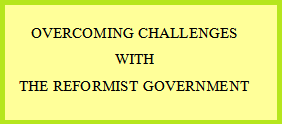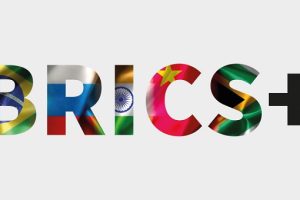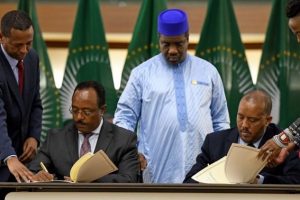Many people may ask, ‘What was the original objective of the OAU/AU when it was first conceived and established by the ‘founding fathers’ of the continental body on May 25, 1963, in Addis Ababa. Africa was trying to find itself as a new reality in the world because the conditions of its existence were undergoing a new process. Once the countries of Africa were freeing themselves from European dictates, they had to figure out how to go about this new, uncharted territory, a reality that they had been craving for years.
They had to think of new plans and trajectories to adopt policies that would match the expectations of their citizens. These people now have new wishes and desires because there are now no excuses to be forwarded because they are free to determine their fate. It was a huge responsibility and a daunting task for which most of the leaders were not adequately prepared to cope with. Hence, they had to begin to adopt a new mentality of self-reliance and self-government, ideas which were new. They had to formulate their future independently of their former bosses by taking into account the new hopes of Africans that they had been pursuing for decades.
The highly longed for and anticipated moment had finally come after a bitter, prolonged, and fierce struggle for freedom. There had been so many years of fighting not only diplomatically but also on the battlefield with the repressive forces of the colonizers, and this had remained deep in the psyche of Africans. It was not susceptible to healing easily because it had deep roots and was very difficult to forget, even if one may have had the intention and willingness to forgive. It was something that many Africans had begun experiencing it since their birth and had no means to change it.
By then, Africa was composed of more than 30 independent states, most of which were just been freed from the dominion of their colonizers. It was a period when there were various liberation fronts’ struggling to free their countries from decades of oppression and exploitation. It was a period when the liberation of the nations that were then free was to be exemplary for the others. A series of important and historical events followed each other, and the colonized countries began to acquire their independence one after the other. Bright light was being observed in African skies, and many thought of experiencing a new beginning in their lives. Africans began to dream.
Those countries that achieved their independence, especially in the monumental year of 1960 when multiple countries had achieved this status, became a huge inspiration and encouragement for others who were still engaged in the fight for liberation, not to desist or lose hope. That was why 1960 was characterized as the year ‘the wind of change’ had begun to blow in Africa. The year 1960 was considered by many as a very important watershed in the history of Africa. It was the year when many countries attained independence in a single year, more than any other year, and the impossible turned out to be possible.
Hence, all these new developments have helped the countries still under colonial shackles to be armed with more commitment and determination, with more belief in reaching the ultimate objective of freedom, and be ready for further sacrifice without being discouraged, fearing failure. It armed them with optimism and more perseverance in chasing the ultimate goal of freedom, just as the others who reached their objective. The success of the other countries helped them adopt a positive mentality that grew with time of reaching the goals that others have achieved.
The aspirations and dreams of the leaders of African nations were being disseminated using all means available, and those who were free were getting engaged in helping others free themselves from the colonial predicament. Among the fiercest enemies of Africans were the racist regimes of South Africa and Rhodesia, which followed more or less the same racist policies. What is more, they were not ready to follow the other colonialists who had to accept the independence of the countries they administered for years without having to account for any power or force, both internally as well as in the international arena.
As they had come and settled on the beaches of Africa much earlier than the colonialists, they had the mentality that the land belonged to them more than the indigenous populations and began to discriminate against them on the basis of their race. Besides these, there were also countries under the dominion of Portugal, such as Angola, Mozambique, and Cape Verde, craving for freedom. There were also other strong liberation movements in South West Africa and elsewhere. Hence, it was a period full of intense activities in the entire continent, full of new developments that were shaping and transforming the continent. Africans believed that as long as all African countries are not freed, their independence is worthless.
Besides however, it was the period when the newly freed countries were struggling to form their own local, national governments, replacing the policies of their European patrons and the paths they had drafted. It was inevitable that there would be many challenges to statehood because it was not so easy to govern. It was a new experiences with these new ‘leaders’, and it was a new experience also for the citizens.
The expectations were very high, as if independence would be a panacea for all the challenges of Africa. Being in control of the powers of government, snatching it from the European colonialists, must have created in the minds of both the new leaders as well as the people that very rosy days were there immediately, and everyone would soon be well off and rich. It was as if all the problems of the states were to disappear into thin air once the colony had hoisted its new flag, dismissing the previous government. In fact, it is hard to blame these people for thinking in those terms. The colonial mentality, which had been inculcated in their mind for decades, in certain cases centuries, made them feel that once those people were gone, everything would be easier to achieve. However, the reality of the taste of freedom was new and had a lot of unknowns, which they could not predict before it actually materialized.
These freed African states had to face many difficulties that were purposely planted by the colonizers over the years. The thorns left were deeply buried and hard to uproot and throw away. The colonizers had been taking advantage of the colonized by fomenting divisions among their subjects based on tribal classifications, ethnic groups, as well as groups of various faiths. Those who had adopted the religion of their masters had been awarded certain privileges and made to be faithful to their masters. In fact, it was such people who were a huge obstacle for the liberation movements to plant their roots and expand in the countries under colonial rule.
These were the methods the colonizers used cynically to divide and rule Africans. They were assisted by collaborators who were ‘bought’ by the colonizers and those were among the reasons why the liberation of Africa was also retarded. History tells us that whenever there were invasions and conquests of African states, it would not have been possible or at least not so easy and so fast if not for the collaboration of local people who were corrupted by the invaders, given lots of money and promises of power, so that they could obtain ample and precious information on the status of things and what weak sides the communities may have.
These selfish insiders were engaged in serving the enemy as guides and providers of valuable information for the invaders, spying on their own fellow countrymen. The cheap advantages they were handed over made them associates of the enemies of their people. The colonizers took full advantage of such information and adapted their colonies accordingly. In fact, these methods are still used in many cases even today!
Be that as it may, however, once the countries became ‘free’, they had to fight the emergence of ‘neo-colonialism’ because the independent countries were deliberately made dependent on the favours of their former bosses. Otherwise, the viability of these newly formed states would be at serious risk. The exploitation of the nations that were freed was hence to continue because of a lack of indigenous manpower and administrative skills. There was a need for assistance in terms of leadership by the newly freed countries, while at the same time, citizens were demanding what they expected would come with independence, easy fortune, and comfort!
In the meantime, however, the leaders of the newly formed countries were trying to consolidate their power. New constitutions had to be promulgated. New laws had to be drafted and decreed, and attempts to democratize the countries were slowly beginning to take shape. The first challenge these newly emerging leaders faced was the rivalry and fight for power among factions, which contributed to the independence movement. As soon as the leaders of the liberation movements took power, they immediately began to try and expand their power. They began to form their own respective gatherings around them, mostly through their relatives, friends, or at most, their clan members. This gave rise to disenchantment, disappointment, and discontent, which then burst into tension and disputes internally.
In many cases, even hostilities have erupted among opposing sides, thus destabilizing the infant states in formation. While the continent was suffering from very serious issues of existence and organisation of the government, the internal struggle for power among the protagonists of the liberation movements became a central issue in practically every country. And this became a major characteristic of the newly freed countries, and the colonialists were mocking them, trying to justify that it was better for them to continue under colonial rule!
The most enlightened leaders of Africa, however, began to ponder these serious issues and began to think in terms of organizing themselves under a new umbrella that could gather all Africans so that they could talk in one voice and try to solve their problems together. The fact that even the newly formed states began to question the artificial boundaries that the colonizers had marked to suit their convenience was to put them in an interminable cycle of conflicts everywhere, because the reality was there in every country. Initially, two groups of independent African states were formed, the so-called Casablanca Group and the Monrovia Group. But then the common sense that the existence of only one big body that would embrace all African countries without differences of culture, language, and creed prevailed, and that led to the foundation of the Organisation of African Unity, OAU, in 1963. And the Charter of the OAU was signed in Addis Ababa under the watch of all the leaders.
A new air of optimism filled the air of African skies. The light of hope was ignited to end the regimes of colonialists and racist governments in Africa. Extended and more intense campaigns were launched thanks to the support of the newly formed OAU, which had as one of its principal raison d’ètres the elimination of colonialism and all forms of racism and discrimination, including the policy of apartheid in South Africa. And hence began a new journey for Africa and a new hope of making it a continent that has a voice in the international arena. The evolution of the AU continues today with more intensity and a sense of purpose, with more commitment to make it a strong and authoritative body capable of exerting influence in the international sphere.
BY FITSUM GETACHEW
THE ETHIOPIAN HERALD SATURDAY 24 MAY 2025



